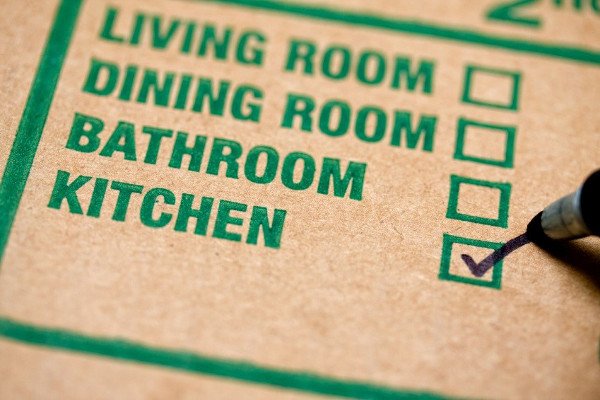You are lucky if you have been informed of your move way ahead. There will be a lot of planning and preparation you have to make to ensure that your transfer will be problem-free.
The best thing to do is to breakdown your schedule according to the number of days you have left before your impending move.
Here are some suggestions on how to schedule your activities to ensure a successful and problem-free move.
-
Two months before your move
 Get the floor plan of your new home and choose which household stuff you want to take with you.
Get the floor plan of your new home and choose which household stuff you want to take with you.- The best way to start is by making an inventory of all the items in your house.
- Get some quotations from moving companies such as Ryder or Hertz.
- Call your home insurance agent and check if your policy covers your move.
- Create a file for all the papers and documents related to your move.
- If you have school kids, arrange for their school transfer.
- Study the offers you’ve been given by moving companies and choose the one the offers the best deal.
-
One and a half month before your move
- Clean out your closets and throw away all items that you won’t need in your new home.
- For good items that you won’t need, hold a garage sale and sell them there, or just donate them to a charity.
- Start searching for the best health-care provider in your new location.
- Arrange for a new post-office change of address cards.
- Give this new address to people who might need it such as credit card companies, insurance agents, relatives, friends, periodical subscriptions, and so forth.
-
One month before your move
- If you are doing a DIY move, call moving truck rental companies and choose the best one and make a reservation. Buy all the necessary supplies such as boxes, labels, packing tapes, twines, and so forth.
- If the mover is doing the packing, let them do it one or two days before you start loading your household goods in the truck.
- Arrange for the cleaning or repair of your furniture, draperies and carpets.
- Start using your overstock supply of foods that can’t be transported.
- Collect all your important personal papers that you may need in your new residence. These include birth certificates, school records and medical and dental records.
- Plan your travel and arrange for motels or suitable reservations.
-
Three weeks before your move
- Arrange for the transfer of the utilities from your present location to your new home.
- Arrange for the transfer of your car registration and car insurance records.
- Inform the State Motor Vehicle Bureau of your new address.
- If moving in a condo, reserve an elevator for pickup and delivery of your goods.
-
Two weeks before your move
- Arrange for the transfer of your pets.
- Check with your mover regarding the transfer of your house plants.
- Throw away all items that are too dangerous to transfer.
- Get your car ready for the trip. If it has not been serviced for a long time, this is the best time to do it.
-
One week before your move
- Arrange for the transfer of all your bank accounts.
- Cancel all newspaper and periodical deliveries.
- Prepare at least two weeks supply of emergency medications. Inform a pharmacy in your new residence about your drug prescriptions, if you have any.
- Purchase the necessary amount of traveller’s checks.
- Arrange for the payment of your moving fees.
- Withdraw all items inside your safety deposit box, and have it closed officially by the bank.
-
Two days before your move
- If you are not doing the packing, this is the time you need to ask your mover to pack all your things.
- If you are taking your refrigerator and freezer, this is the time to defrost them.
- Prepare all the valuable items such as jewelry, valuable small items, cash, and important documents in a separate and safe pouch or box that you can carry personally.
-
The day of your move
- Give the mover the direction to your new home.
- If you are not accompanying the mover, give him your phone number where he can contact you for any problems.
- Be ready to give directions to movers and answer all the questions that they may have until they are finished with the job.
- Fill up all the information required in the bill of lading. Read any document carefully before signing it.
- Get a copy of the bill of lading and inventory, and keep it until all your things are delivered and everything is paid and all your claims (if there are any) are settled.
- Before the mover leaves, take a final look at the van and check if nothing has been left behind.
-
Arrival in your new home
- Pay the driver before your goods are unloaded. This is a Federal requirement for interstate moves.
- Supervise unloading and unpacking.
- Check carefully for any damaged or missing items.
- Note on the inventory any damaged items caused by the move before you sign anything.

